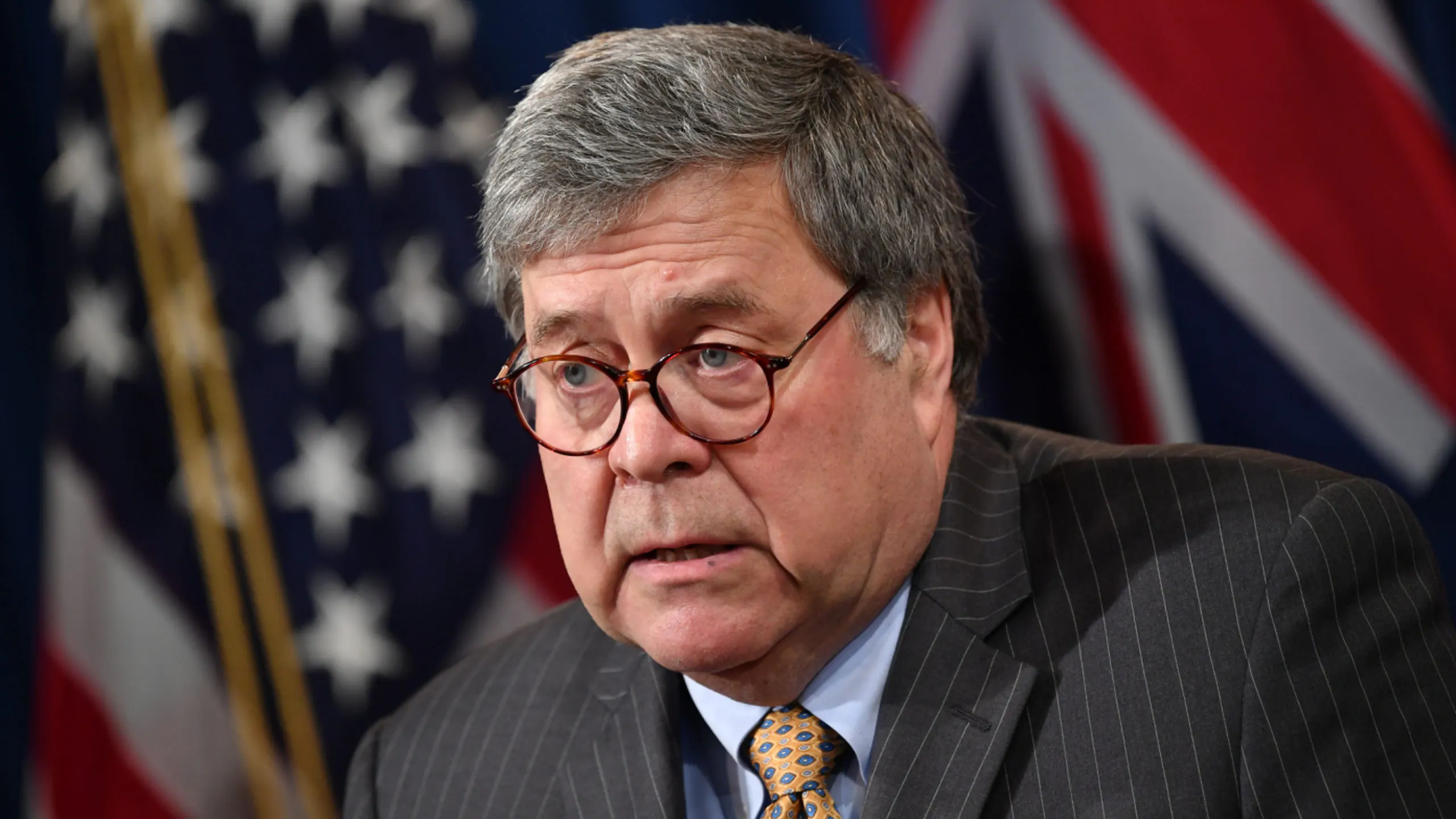On Sunday, Attorney General William Barr appeared on CBS’ “Face the Nation” with host Margaret Brennan to discuss issues relating to the ongoing protests across the nation, including police reform.
During the exchange, Brennan asked Barr if he believes “there is systemic racism in law enforcement.”
Barr replied, first noting that he does not believe that law enforcement as an institution is “systemically racist,” adding that it’s imperative to understand the reasons that drive African American “distrust” in police.
I think there’s racism in the United States still, but I don’t think that the law enforcement system is systemically racist. I understand the distrust, however, of the African American community given the history in this country. I think we have to recognize that for most of our history, our institutions were explicitly racist. They denied equal rights to African Americans … first under slavery, then under Jim Crow.
Since the abolition of Jim Crow laws, which really didn’t get struck down completely until the 1960s – as a result of that, the civil rights movement was largely battling these institutions that were imposing racism. Since the 1960s, I think we’ve been in a phase of reforming our institutions and making sure that they’re in sync with our laws and aren’t fighting a rearguard action to impose inequities.
“And you think that’s working?” Brennan asked.
“I think the reform is a difficult task, but I think it is working and progress has been made. I think one of the best examples is the military,” Barr stated. “The military used to be [an] explicitly racist institution, and now I think it’s in the vanguard of bringing the races together and providing equal opportunity. I think law enforcement has been going through the same process.”
The attorney general added that there has been “undeniable” progress, despite law enforcement not being a “monolithic” institution. Barr also complimented the president on recent criminal justice reform, as well as his setting up of “the first Commission on Policing … since Lyndon Johnson.”
“They have been working on these issues, and in the days and weeks ahead, we’re gonna be expanding those efforts and coming forward with concrete proposals,” Barr said.
Brennan later pressed Barr, asking if he believes that immunity policies should be altered in order to better pursue “bad cops.”
Barr pushed back, saying that reducing immunity isn’t necessarily the best means of going “after the bad cops” because it could lead to a pull-back in policing.
“Policing is the toughest job in the country, and I, frankly, think that we have generally the vast, overwhelming majority of police are good people,” Barr continued. “They’re civic-minded people who believe in serving the public. They do so bravely. They do so righteously.”
“But the bad cops,” Brennan interjected.
“I think that there are instances of bad cops,” Barr said before making a key distinction.
And I think we have to be careful about automatically assuming that the actions of an individual necessarily mean that their organization is rotten. All organizations have people who engage in misconduct, and you sometimes have to be careful as to when you ascribe that to the whole organization and when it really is some errant member who isn’t following the rules.
The two further engaged in a discussion about the opening of “pattern-or-practice investigations,” which are set in motion by the Department of Justice to “reform serious patterns and practices of excessive force, biased policing and other unconstitutional practices by law enforcement,” according to the DOJ.
When probed as to why one wouldn’t just open such an investigation into the Minneapolis Police Department, Barr responded that simply doing so as a reaction to what occurred “doesn’t necessarily result in improving the situation.”
The AG also noted that “Governor Walz, a Democratic governor, is investigating the police department,” as is the Minnesota attorney general.
The Daily Wire, headed by bestselling author and popular podcast host Ben Shapiro, is a leading provider of conservative news, cutting through the mainstream media’s rhetoric to provide readers the most important, relevant, and engaging stories of the day. Get inside access to The Daily Wire by becoming a member.

.png)
.png)

